More from Santa Teresa's Life
Meditating On Christ's Humanity-
Chapter XXII.
1. There is one thing I should like to say—I think it important: and if you, my father, approve, it will serve for a lesson that possibly may be necessary; for in some books on prayer the writers say that the soul, though it cannot in its own strength attain to this state,—because it is altogether a supernatural work wrought in it by our Lord,—may nevertheless succeed, by lifting up the spirit above all created things, and raising it upwards in humility, after some years spent in a purgative life, and advancing in the illuminative. I do not very well know what they mean by illuminative: I understand it to mean the life of those who are making progress. And they advise us much to withdraw from all bodily imagination, and draw near to the contemplation of the Divinity; for they say that those who have advanced so far would be embarrassed or hindered in their way to the highest contemplation, if they regarded even the Sacred Humanity itself.306306See Inner Fortress , vi. 7, § 4. They 178 defend their opinion307307This opinion is supposed to be justified by the words of St. Thomas, 3 Sent. dist. 22, qu. 3, art. 1, ad quintum . "Corporalis præsentia Christi in duobus poterat esse nociva. Primo, quantum ad fidem, quia videntes Eum in forma in qua erat minor Patre, non ita de facili crederent Eum æqualem Patri, ut dicit glossa super Joannem. Secundo, quantum ad dilectionem, quia Eum non solum spiritualiter, sed etiam carnaliter diligeremus, conversantes cum Ipso corporaliter, et hoc est de imperfectione dilectionis." by bringing forward the words308308St. John xvi. 7: "Expedit vobis ut Ego vadam; si enim non abiero, Paracletus non veniet ad vos." of our Lord to the Apostles, concerning the coming of the Holy Ghost; I mean that Coming which was after the Ascension. If the Apostles had believed, as they believed after the Coming of the Holy Ghost, that He is both God and Man, His bodily Presence would, in my opinion, have been no hindrance; for those words were not said to the Mother of God, though she loved Him more than all.309309This sentence is in the margin of the original MS., not in the text, but in the handwriting of the Saint ( De la Fuente ). They think that, as this work of contemplation is wholly spiritual, any bodily object whatever can disturb or hinder it. They say that the contemplative should regard himself as being within a definite space, God everywhere around, and himself absorbed in Him. This is what we should aim at.
2. This seems to me right enough now and then; but to withdraw altogether from Christ, and to compare His divine Body with our miseries or with any created thing whatever, is what I cannot endure. May God help me to explain myself! I am not contradicting them on this point, for they are learned and spiritual persons, understanding what they say: God, too, is guiding souls by many ways and methods, as He has guided mine. It is of my own soul that I wish to speak now,—I do not intermeddle with others,—and of the danger I was in because I would comply with the directions I was reading. I can well believe that he who has attained to union, and advances no further,—that is, to raptures, visions, and other graces of God given to souls,—will consider that opinion to be best, as I did myself: and if I had continued in it, I believe I should never have reached the state I am in now. I hold it to be a delusion: still, it may be that it is I who am deluded. But I will tell you what happened to me.
3. As I had no director, I used to read these books, where, by little and little, I thought I might understand something. I found out afterwards that, if our Lord had not shown me the way, I should have learned but little from books; for I understood really nothing till His Majesty made me learn by experience: neither did I know what I was doing. So, in the beginning, when I attained to some degree of supernatural prayer,—I speak of the prayer of quiet,—I laboured to remove from myself every thought of bodily objects; but I did not dare to lift up my soul, for that I saw would be presumption in me, who was always so wicked. I thought, however, that I had a sense of the presence of God: this was true, and I contrived to be in a state of recollection before Him. This method of prayer is full of sweetness, if God helps us in it, and the joy of it is great. And so, because I was conscious of the profit and delight which this way furnished me, no one could have brought me back to the contemplation of the Sacred Humanity; for that seemed to me to be a real hindrance to prayer.
4. O Lord of my soul, and my Good! Jesus Christ crucified! I never think of this opinion, which I then held, without pain; I believe it was an act of high treason, though done in ignorance. Hitherto, I had been all my life long so devout to the Sacred Humanity—for this happened but lately; I mean by lately, that it was before our Lord gave me the grace of raptures and visions. I did not continue long of this opinion,310310"I mean by lately . . . and visions" is in the margin of the MS., but in the handwriting of the Saint ( De la Fuente ). and so I returned to my habit of delighting in our Lord, particularly at Communion. I wish I could have His picture and image always before my eyes, since I cannot have Him graven in my soul as deeply as I wish.
5. Is it possible, O my Lord, that I could have had the thought, if only for an hour, that Thou couldst be a hindrance to my greatest good? Whence are all my blessings? are they not from Thee? I will not think that I was blamable, for I was very sorry for it, and it was certainly done in ignorance. And so it pleased Thee, in Thy goodness, to succour me, by sending me one who has delivered me from this delusion; and afterwards by showing Thyself to me so many times, as I shall relate hereafter,311311Ch. xxviii. § 4 . that I might clearly perceive how great my delusion was, and also tell it to many persons; which I have done, as well as describe it as I am doing now. I believe myself that this is the reason why so many souls, after advancing to the prayer of union, make no further progress, and do not attain to very great liberty of spirit.
11. This withdrawing from bodily objects must no doubt be good, seeing that it is recommended by persons who are so spiritual; but, in my opinion, it ought to be done only when the soul has made very great progress; for until then it is clear that the Creator must be sought for through His creatures. All this depends on the grace which our Lord distributes to every soul. I do not intermeddle here. What I would say is, that the most Sacred Humanity of Christ is not to be counted among the objects from which we have to withdraw. Let this be clearly understood. I wish I knew how to explain it.314314See St. John of the Cross, Mount Carmel , bk. iii. ch. i. p. 212.12. When God suspends all the powers of the soul,—as we see He does in the states of prayer already described,—it is clear that, whether we wish it or not, this presence is withdrawn. Be it so, then. The loss 183 is a blessed one, because it takes place in order that we may have a deeper fruition of what we seem to have lost; for at that moment the whole soul is occupied in loving Him whom the understanding has toiled to know; and it loves what it has not comprehended, and rejoices in what it could not have rejoiced in so well, if it had not lost itself, in order, as I am saying, to gain itself the more. But that we should carefully and laboriously accustom ourselves not to strive with all our might to have always—and please God it be always!—the most Sacred Humanity before our eyes,—this, I say, is what seems to me not to be right: it is making the soul, as they say, to walk in the air; for it has nothing to rest on, how full soever of God it may think itself to be.
13. It is a great matter for us to have our Lord before us as Man while we are living and in the flesh. This is that other inconvenience which I say must be met with. The first—I have already begun to describe it—is a little failure in humility, in that the soul desires to rise of itself before our Lord raises it, and is not satisfied with meditation on so excellent a subject,—seeking to be Mary before it has laboured with Martha. If our Lord will have a soul to be Mary, even on the first day, there is nothing to be afraid of; but we must not be self-invited guests, as I think I said on another occasion.315315Ch. xii. §§ 5 , 7 . This little mote of want of humility, though in appearance a mere nothing, does a great deal of harm to those who wish to advance in contemplation.
14. I now come back to the second consideration. We are not angels, for we have a body; to seek to make ourselves angels while we are on the earth, and so much on the earth as I was, is an act of folly. In general, our thoughts must have something to rest on, though the soul may go forth out of itself now and then, or it may be very often so full of God as to be in 184 need of no created thing by the help of which it may recollect itself. But this is not so common a case; for when we have many things to do, when we are persecuted and in trouble, when we cannot have much rest, and when we have our seasons of dryness, Christ is our best Friend; for we regard Him as Man, and behold Him faint and in trouble, and He is our Companion; and when we shall have accustomed ourselves in this way, it is very easy to find Him near us, although there will be occasions from time to time when we can do neither the one nor the other.
21. I come, then, to this conclusion: whenever we think of Christ, we should remind ourselves of the love that made Him bestow so many graces upon us, and also how great that love is which our Lord God has shown us, in giving us such a pledge of the love He bears us; for love draws forth love. And though we are only at the very beginning, and exceedingly wicked, yet let us always labour to keep this in view, and stir ourselves up to love; for if once our Lord grants us this grace, of having this love imprinted in our hearts, everything will be easy, and we shall do great things in a very short time, and with very little labour. May His Majesty give us that love,—He knows the great need we have of it,—for the sake of that love which He bore us, and of His glorious Son, to whom it cost so much to make it known to us! Amen.


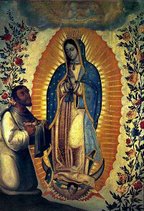
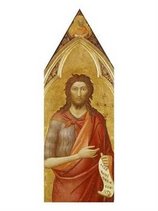


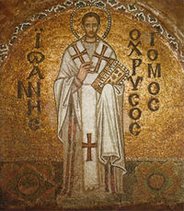
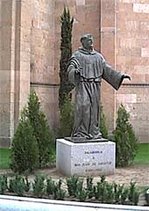

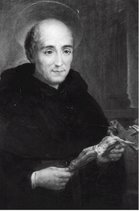
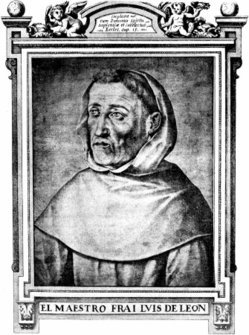






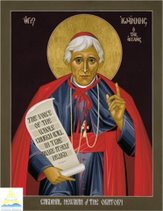




No comments:
Post a Comment